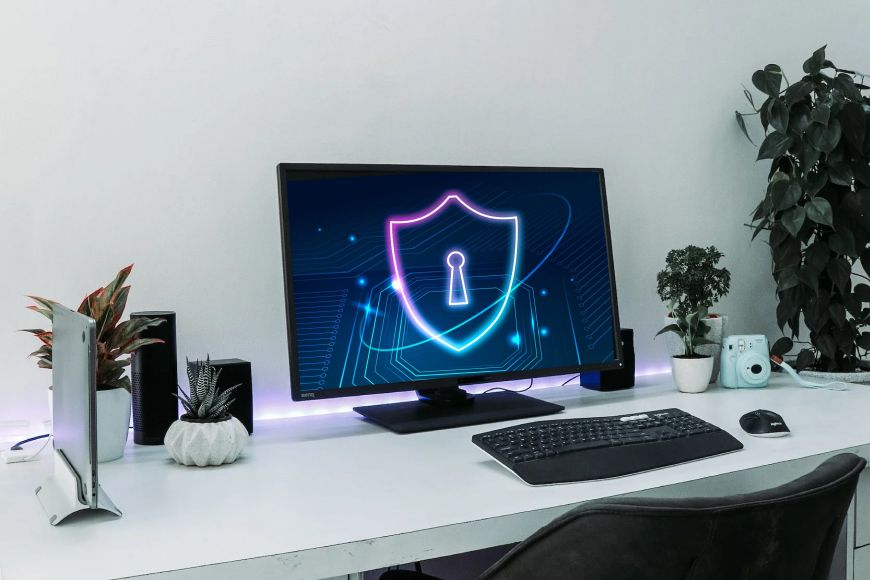Advances in consumer technology in recent years have often led us to believe that our devices are now “smart” and “secure.” While the former may be true to some extent, how sure can we be of the latter?
Especially with the constant reports of hacks and security breaches around the world, can we really say that our devices are sufficiently protected?
From various types of viruses to ransomware, various cyberattacks are constantly targeting our everyday computer systems. We understand your concerns. On the one hand, Microsoft claims that Windows 11 is equipped with many security features, on the other hand, many cybersecurity experts and companies recommend using additional antivirus programs.
We’re not saying you should blindly believe everything these companies claim, but it’s worth considering your options wisely. There are a few factors to consider when deciding whether or not you need an antivirus on your Windows device.
Different users, different security needs
Let’s say you only use your computer for basic activities, such as occasional web browsing or creating and saving offline documents. In that case, your risk of exposure to serious threats is quite low. So you might think you don’t need an antivirus program—especially if you follow basic security practices. But how often is that really the case?
It may happen that your work requires you to download and install third-party software from less secure, unverified app stores. You may also be forced to visit unsafe “HTTP” sites that expose users to various threats (e.g. hidden malicious content, phishing scripts, etc.) because they lack a secure SSL certificate. In such cases, an additional layer of protection in the form of an antivirus program makes sense.
But Windows 11 has a built-in antivirus program.
For those who don’t know, Windows 11 includes a built-in security and antivirus system called Windows Security (formerly known as Microsoft Defender), which Microsoft says protects your computer from threats at the system and network levels. In the „Virus & threat protection” section, you can, for example, check the current status of your system and run manual scans.
You can also use parental controls to limit screen time or block access to dangerous websites, for example. While Windows Security does a good job of dealing with basic threats, that doesn’t mean it doesn’t have its limitations.
Windows Security Limitations – and Why You Should Have an Additional Antivirus Solution
Every user uses their device differently. Some have limited exposure to threats such as viruses, spyware, and ransomware, while others are more vulnerable. If you belong to the latter group, you should pay special attention to:
Malware Detection
One reason to switch to a dedicated antivirus like Malwarebytes or Kaspersky is to better protect against zero-day threats—malware that hasn’t yet been identified or patched by security experts. These vendors continually update their detection systems to cover the broadest spectrum of threats.
Advanced, real-time protection is often unattainable with standard tools like Windows Security, which rely heavily on operating system updates and security patches. However, these are not always sufficient to protect against newly discovered vulnerabilities – Windows Security often needs more time to recognize and remove potential threats.
Additional features
Another argument against Windows Security alone is the lack of additional security features, such as a password manager or built-in VPN solutions. Many antivirus programs, such as Bitdefender, offer features such as device theft protection and secure password storage. These features help protect your data and identity online.
System resource usage
Although Windows Security can scan your system, enabling real-time protection often leads to a drop in performance. The built-in system uses a lot of resources because it simultaneously handles other system tasks. As a result, your computer may run slower – and Windows Security is not optimally suited to intensive and continuous threat detection.
This is not the case with third-party programs. Many antivirus solutions, such as Avast and McAfee, are optimized to use minimal resources, providing protection without slowing down your computer.
Dedicated user interface
Another drawback: Windows Security does not have a standalone, extensive user interface. For example, if you want to regularly check the quarantine folder or scan selected folders, a clearer panel will come in handy – and the standard solution does not offer this. Programs such as Norton Security or ESET, on the other hand, offer a clear dashboard with all the important security functions in one place.
Summary
So do you need additional antivirus software for Windows? The answer is yes! While the built-in protection in Windows 11 is a good start, it doesn’t provide the same level of protection as specialized software. Investing in a third-party solution can pay off in the long run—both in terms of security and in protecting against potential financial losses.
What’s more: both free and paid options are available. Well-known providers such as Avast and Bitdefender offer free antivirus programs for Windows that provide more features and control than Windows Security out of the box. Depending on your budget and protection needs, you can choose the right option for you.




